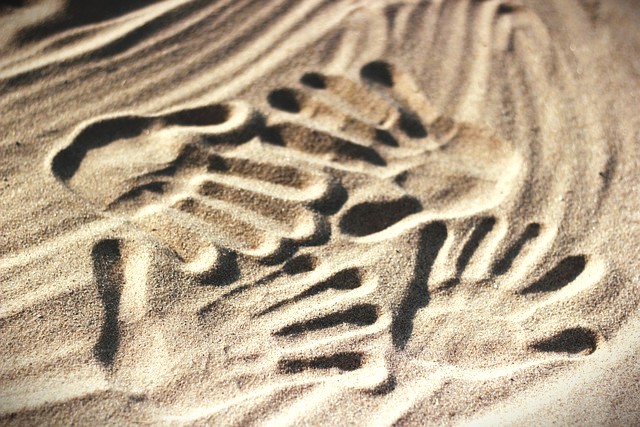
This week’s parsha begins by telling us what will occur when the Jews finally conquer and settle the Land of Canaan. “It will be when you enter the Land that Hashem, your G-d, gives you as an inheritance, and you possess it, and dwell in it” (Deuteronomy 26:13). It relates the mitzvah of Bikurim: “You shall take of the first of every fruit of the ground that you bring in from your Land that Hashem, your G-d, gives you, and you shall put it in a basket and go to the place that Hashem, your G-d, will choose, to make His Name rest there (Deuteronomy 26:2).The bikurim are then presented to the kohen. “You shall come to whomever will be the Kohen in those days, and you shall say to him, “I declare today to Hashem, your G-d, that I have come to the Land that Hashem swore to our forefathers to give us” (Deuteronomy 26:3).
What kind of introductory remark is that? Of course, we come to the land! If we had not arrived, we would not be here! Why then do we tell the kohen that “I declare today that I have arrived”?
As a student in the Ponovez Yeshiva, I would spend some summer days in the resort town of Netanya. One day, I spotted what, to an American seemed like an anomaly: a small Yemenite man, long curly peyos dangling from his darkly tanned olive-skinned face, bouncing up and down as he, dressed in a policeman’s uniform, was directing traffic. I had never seen an orthodox policeman, let alone one who had dangling side curls. My propensity to talk to fellow Jews and my inherent fascination with curiosities, spurred me to engage him in conversation.
As we talked, he told me about lineage. I mentioned that my name was Kamenetzky, and he froze in disbelief.
“Are you, by any chance, related to the famous Rabbi Kamenetzky of America who recently visited Israel?”
“Do you mean Rabbi Yaakov Kamenetzky?” I inquired. When he nodded, in excited corroboration, I added, “he is my grandfather.” It was as if I had sent a charge of electricity through his body!
He beamed at me. “Do you know that your grandfather, Rabbi Yaakov Kamenetzky attended my son’s bris, right here in Netanya!”
I did a double take and thought, “Yeah Right! Sure. My 89-year-old grandfather came to Netanya for a Yemenite police officer’s son’s bris.” The man registered my apparent skepticism, and proceeded with the following story. At the time, Kiryat Zanz, the community built by the Klausenberg Rebbe, in Netanya, had recently expanded its medical center. The administrators wanted Rabbi Kamenetzky to see the beautiful facility first hand. The revered sage’s endorsement would surely boost their fundraising efforts. They picked Rav Yaakov up from his accommodations in Jerusalem, and drove him to Netanya. Entering the city limits, Rav Yaakov asked, “Are we going to the hospital?”
When the administrators and the driver, affirmed that destination, Rav Yaakov said, “No, we are going to the Rav. When one comes to a town, his first stop is to see the Rav. After we greet the Rav, we will see the hospital.”
They went to the home of Rabbi Lau, (Israel’s current Chief Rabbi) Rav of Netanya, but he was not there.
At that point in the story, the policeman became excited. “Do you know where Rabbi Lau was?” he beamed.
He did not wait for an answer. “Rabbi Lau was at my son’s bris! And a few minutes later, your grandfather arrived as well!”
Imagine. It took the Jews fourteen years to settle and conquer the Land of Canaan. Until they settled, there was no mitzvah to bring bikurim, (first fruits). During all those years, no one had formally presented themselves to the Kohen. They may have gone to Jerusalem for the holidays, or for other occasions, but never was there a formal presentation to the kohen.
Thus, when the simple farmer finally presents himself to the kohen, he uses the words, “I declare, today, to Hashem that I have come.” Perhaps the Torah is subtly sending a simple message: ” Kohen, now that I greet you, I declare that I have arrived.” Because until you have greeted the kohen, you may have battled. You may have conquered. You may have sown, and you may have reaped. But you have not arrived.
Good Shabbos!
This week’s Drasha is dedicated in memory of Bertha Fisch & Tobias Stein by Mr. and Mrs. Lionel Fisch Braina bas Reb Aryeh Laib of blessed memory – 23 Elul Reb Tuivia ben Reb Chaim of blessed memory 25 Elul.
Copyright © 2001 by Rabbi M. Kamenetzky and Project Genesis, Inc.
If you enjoy the weekly Drasha, now you can receive the best of Drasha in book form! Purchase Parsha Parables – from the Project Genesis bookstore – Genesis Judaica – at a very special price!
The author is the Dean of the Yeshiva of South Shore.


